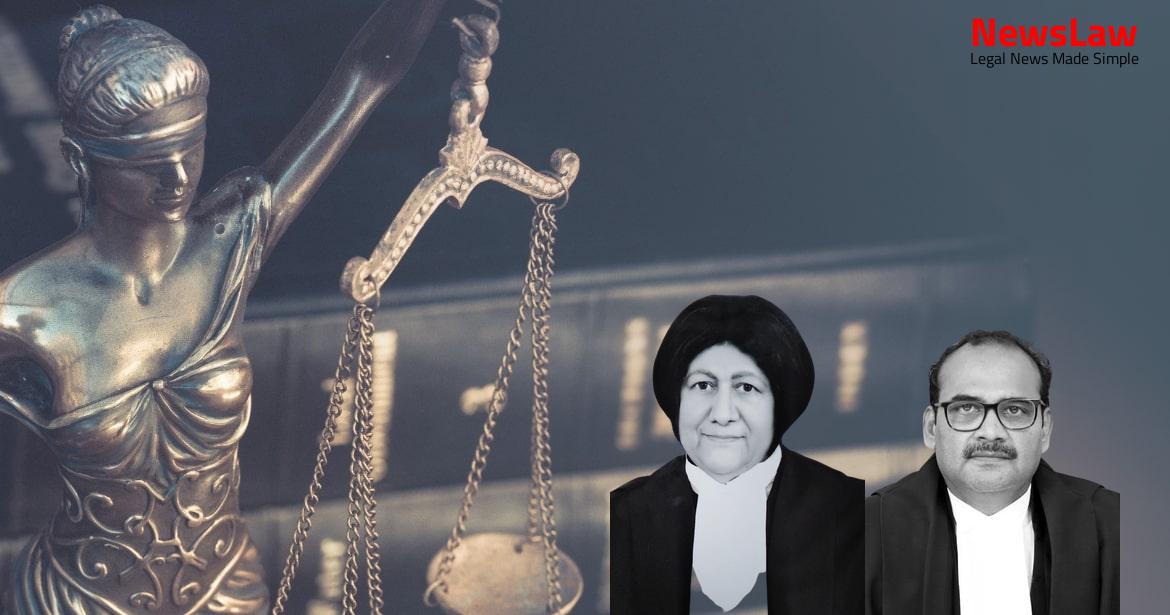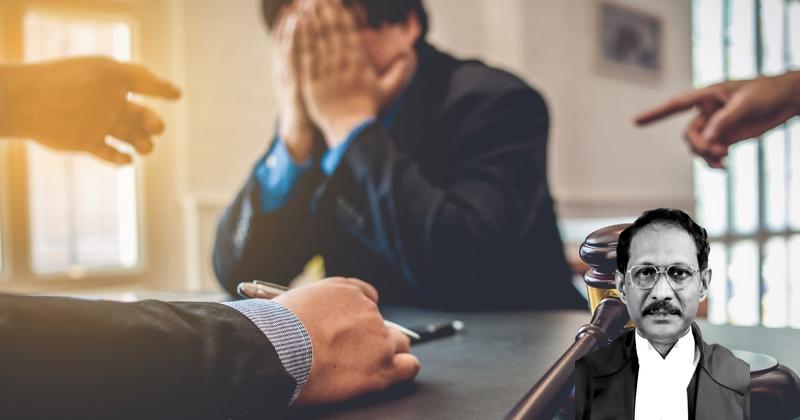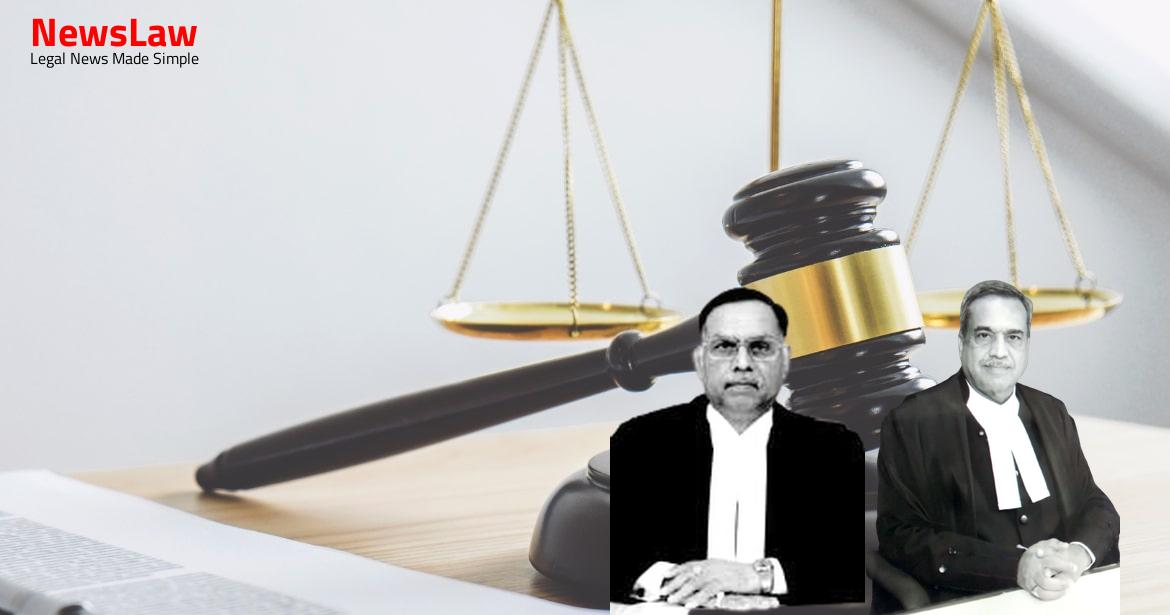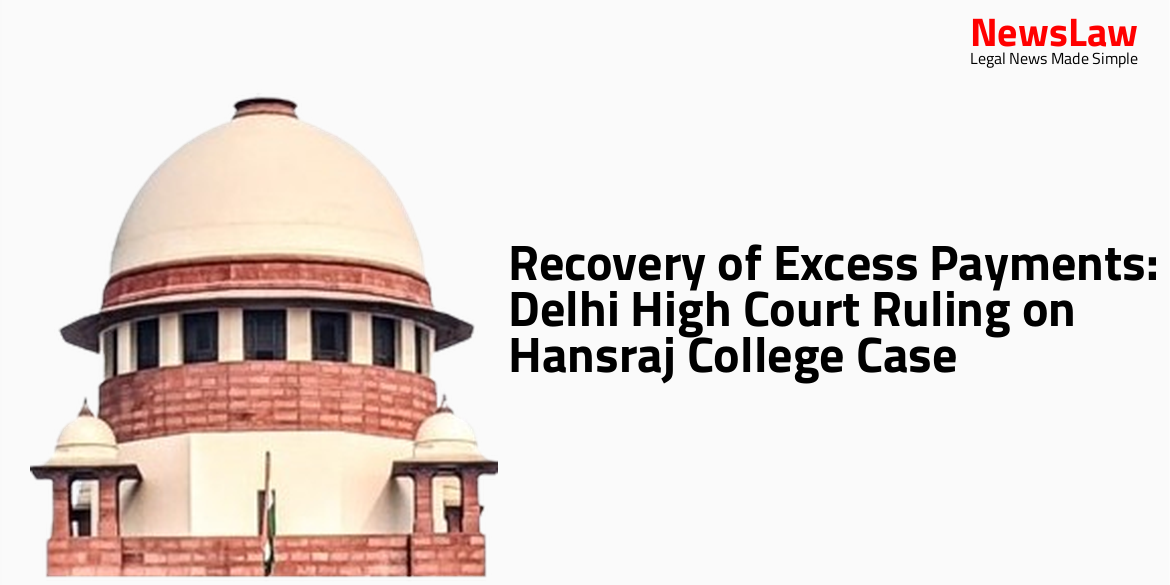In a recent legal case concerning a property dispute, the court’s legal analysis of the execution rules proved to be pivotal. The court’s thorough examination of Order XXI Rules 97 to 102 shed light on the complexities surrounding the parties’ claims and objections. The case delves into the nuances of possession, ownership, and the application of relevant legal provisions, showcasing the importance of meticulous legal interpretation in resolving disputes effectively.
Facts
- Subhash Chander Sabharwal sought impleadment as a plaintiff in Civil Suit No.181/1994 based on a will dated 29.08.1992 bequeathing the property to the respondent trust.
- Legal heirs of Shri N.D. Mishra were not aware of the will but admitted the ownership of the respondent trust over the property.
- The appellant company acquired the suit property from Mr. Yogesh Mishra via a sale deed and took possession from the tenant claiming to be the agent of Mr. Yogesh Mishra.
- The High Court’s previous order allowed for filing a separate suit to decide the ownership dispute over the property, leading to the appellant’s objections being dismissed in the execution proceedings.
- Decree of mandatory injunction was passed in favor of the respondent trust, and the legal heirs, along with the trust, became the decree holders.
- Trial Court decreed the suit in favour of plaintiffs and restrained the defendant from obstructing the plaintiff’s right of passage
- Defendant was also restrained from raising further construction
- Trial Court directed payment of Rs.30,000/- per month as damages from 01.06.1994 till the date of delivery of possession to plaintiffs
- Execution proceedings were initiated by decree holders, appellant company filed objections, which were decided by the Executing Court on 13.01.2012
- Order of the Executing Court was challenged by the respondent trust in the High Court
- High Court allowed the petition and set aside the order of the Executing Court
Also Read: Analysis of Financial Statements as Acknowledgment in Limitation Act Case
Arguments
- The counsel for the respondent trust supports the High Court’s judgment.
- The appellant company is claiming the suit property based on a ‘Will dated 23.05.1998’ which has not been proven in court according to Section 64 of the Indian Evidence Act.
- The Executing Court has already considered the claim or objection of the appellant company under Order XXI Rule 58, and any new decree in a civil suit would be necessary to supplant it.
- The appellant cannot invoke proceedings under Order XXI Rule 97 to 101 of CPC as they have already utilized Order XXI Rule 58.
- According to the respondent, the appellant company does not fit the criteria specified under Order XXI Rule 97, as only the ‘decree-holder’ or an ‘auction purchaser’ can make an application there.
Also Read: Interpretation of Corporate Guarantor under IBC
Analysis
- Applications under Rule 97 and Rule 99 are subject to Rule 101 for determination of disputes without the need for a separate suit.
- Rule 98 and Rule 100 empower the Court to pass orders on applications under Rule 97 and Rule 99.
- Rule 101 mandates the Court to decide questions of right, title, or interest arising between parties in the same proceedings.
- Rule 102 excludes the application of Rule 98 and Rule 100 in cases where resistance is offered by a ‘transferee pendente-lite’.
- The appellant, being a bona-fide purchaser in possession of the property, cannot use Rule 97 to object to the execution of the decree.
- The appellant has not been dispossessed as required under Rule 99 and hence cannot raise objections under it.
- The appellant’s possession of the property is uncontested, and the property was legally purchased.
- The appellant has no grounds to apply under Rule 97 or Rule 99 based on the facts of the case.
- Order XXI Rule 101 does not apply as the appellant is not entitled to make applications under Rule 97 or Rule 99.
- Rule 99 of Order XXI allows ‘any person’ other than the judgment debtor to complain about dispossession by the decree holder.
- Rule 102 states that rules 98 and 100 do not apply to resistance or obstruction by a transferee pendente lite.
- All questions relevant to the adjudication of an application under rule 97 or rule 99 shall be determined by the court dealing with the application, without the need for a separate suit.
- The High Court rightfully set aside the Trial Court’s order to entertain the appellant’s objections under Order XXI Rule 97 to Rule 102.
- The Executing Court had no authority to frame issues or direct parties to produce evidence on the objections raised by the appellant.
- This action by the Executing Court exceeded the scope of Order XXI Rule 97 and Rule 99.
Also Read: Quashing of FIR and Charge-sheet: Legal Analysis
Decision
- The appeal is dismissed.
- The Executing Court is directed to decide the execution case expeditiously.
- The decision should be made within six months.
Case Title: SRIRAM HOUSING FINANCE AND INVESTMENT INDIA LIMITED Vs. OMESH MISRA MEMORIAL CHARITABLE TRUST (2022 INSC 659)
Case Number: C.A. No.-004649-004649 / 2022



